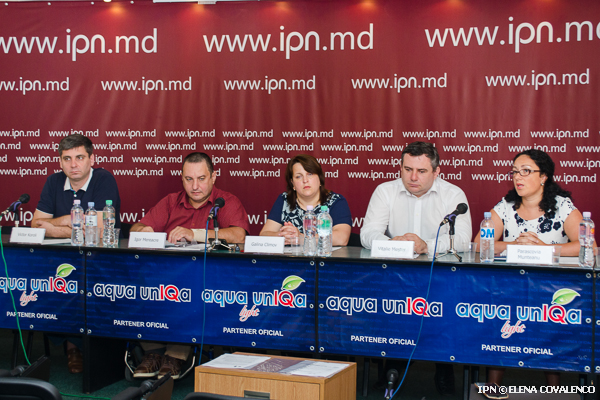
A number of 35 nongovernmental organizations join forces within a project designed to promote the rights of the persons with special needs. The NGOs will monitor and will offer counseling in the process of elaborating and implementing public policies. The project was presented by members of the Alliance of Organizations for Persons with Disabilities of the Republic of Moldova in a news conference at IPN on July 8.
Coordinator of the Alliance’s secretariat Galina Climov said the project will last for 11 months. In the period, the 35 NGOs will carry out advocacy activities in three areas, namely ensuring of conditions of accessibility, employment of persons with disabilities, and deinstitutionalization. These three areas were selected owing to the major problems existing there.
Vitalie Mester, executive director of the Center for Legal Assistance for Persons with Disabilities, said the state undertook to ensure the right to work of the persons with disabilities, but there are serious shortcomings in this regard. Even if there are relevant legislative provisions, there is no mechanism for implementing these. Moreover, all the implementation costs are to be covered by employers and this causes resistance on the part of entrepreneurs when disabled persons are to be employed.
Igor Meriacre, executive director of the public association “Motivatie”, stated that most of the public institutions and social facilities of the country do not have ramps and this prevents the persons with disabilities from taking a more active part in the social life. Though there is legislation that obliges the public institutions to build ramps and adjust the sanitary facilities, there are no mechanisms for monitoring the implementation of the law. Therefore, the responsible persons do not hurry to ensure accessibility to buildings.
Parascovia Munteanu, program manager at the public association Keystone Moldova, said that on July 9 it will be six years of the ratification of the UN Convention on the Rights of Persons with Disabilities by Moldova. Even after such a long period of time, about 2,300 persons with mental disabilities, 5% of whom are children, remain isolated in residential institutions. These persons’ rights to live in the community, to work, to education and to take part in the public life are violated. The residential system reform is done slowly owing to the great resistance of society and the authorities, which is caused by stereotypes and the lack of services for these persons.
Infonet Alliance executive director Victor Koroli noted that a digital platform will be created within the project to cover all the organizations promoting the rights of the persons with disabilities. This will contain information about each association apart and will enable to facilitate the communication with them and between them. There will be possibilities of establishing new partnerships, including with the public authorities and the mass media. It is very important to strengthen the NGOs working in this field because, working together, results can be achieved.
According to statistics, there are at least 184,000 people with disabilities in the Republic of Moldova.












